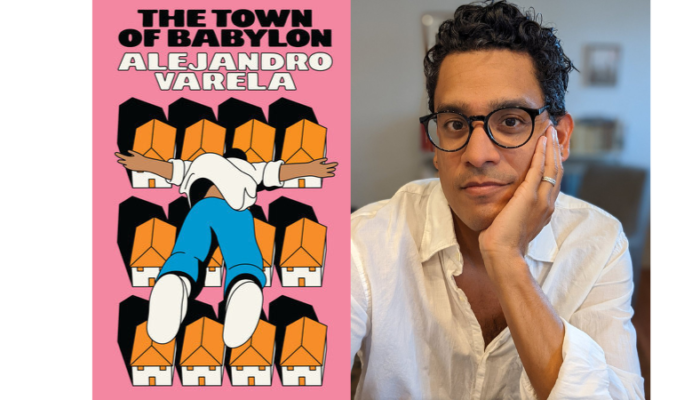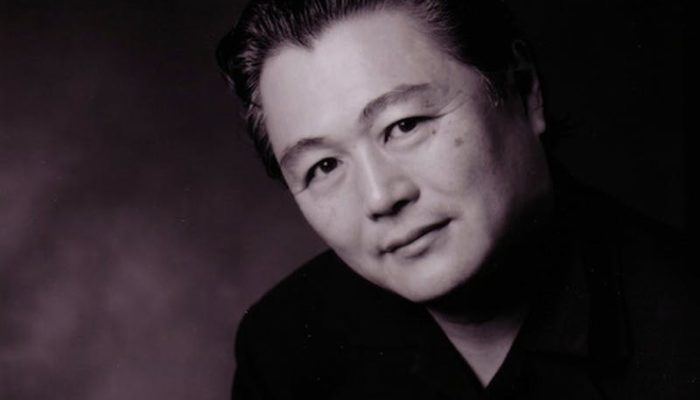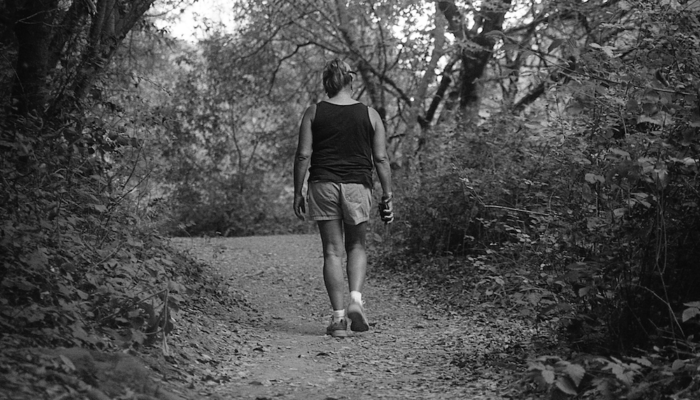Reading James McBride’s The Good Lord Bird brought me the kind of joy that makes me question the decentness of my pleasure. You know what I mean if you’ve watched the scene in Django Unchained when the Klan members complain about the faulty eyeholes in their white hoods. Or Dave Chappelle’s parody of Roots, where his Kunta Kinte whoops his master’s ass. In The Good Lord Bird, McBride offers a retelling of the adventures leading up to abolitionist John Brown’s unsuccessful raid on Harper’s Ferry, and in the process offers countless comedic moments embedded in the tragic context of slavery. Such a juxtaposition begs questions: What are we, as readers, to make of the deliberate humor derived from a horrific context? What makes this kind of humor palatable?
The story is narrated by the clever, saucy Henry Shackleford, a slave boy who inadvertently joins John Brown’s group of motley militants, whom he describes as “nothing but a ragtag assortment of fifteen of the scrawniest, bummiest, saddest-looking individuals you ever saw.” John Brown essentially kidnaps Henry from his life as a slave, leading Henry to describe the abolitionist as someone who, “reckoned every colored wanted to fight for his freedom. It never occurred to him that they would feel any other way.”
John Brown mistakes Henry for a girl early on, and then Henry pretends to be a girl throughout the course of the novel when he realizes it will make his position in the group more secure and protected. He cross-dresses, does his business in private, and tries to hide his growing desire for several female characters in the book. He also gets out of doing a lot of work, and is able to exploit the empathy of even the Pro-Slavery fighters. At one point, one of them asks Henry, “Is you part nigger or just a white girl with a dirty face?” and he responds, “I am Henrietta Shackleford and you ought not to talk ‘bout me like I am a full-blooded nigger, being that I am only half a nigger and all alone in this world… I just don’t know where I belongs, being a tragic mulatto and all,” and bursts into tears, gaining him the sympathy of the men. Though this dragging creates all kinds of slapstick situations, it also points to a more profound idea that resonates throughout McBride’s novel: the idea that black people at that time could not convey their true identities; that they always needed to keep part of them hidden in order to stay safe.
The first half of the novel is set mostly near the Kansas-Missouri border during the Bleeding Kansas years, and revolves around Wild West-style battles between Free Staters (John Brown and his crew) and Pro-Slavers fight on the plain. Henry’s adventures are episodic, reminding me at some points of early Spanish picaresques, with all the humor and absurdity of Lazarillo de Tormes. Henry is indeed a “picaro,” (rogue/rascal), an anti-hero whose main focus is saving his own butt. He is consistently scheming ways to get away from John Brown’s crew, who he sees as doomed from early on.
McBride mentioned in an interview with PBS that part of his project was to “create something that would allow people room to laugh at things they can’t really talk about easily.” The novel shows the power of narrative voice to shape content, to give new meaning to a usually tragically told story.
The language has a lot to do with it: the southern vernacular, full of colloquialisms and wild idioms, makes the narrator’s voice sparkle. To express fear, Onion narrates: “I growed chickenhearted from that affair, scared right down to my little dangling rascal and his twin little giddies.” The book is also full of insults that would add color to any diss book: “That silly nag’s been boarded more than the B&O railroad.” In two interviews (with PBS and NPR), McBride expressed his affinity for the “hee-haw chit chat” that represents the rural south: “I love the language of, you know, the old, black, country man with a blues guitar and … boots and the quick banter… I just love that voice and I wanted this character to be an old man looking back on his life and then telling a, just a grand whopper.”
The characters-turned-caricatures also lend much of the humor to the book. McBride depicts Frederick Douglass not in the reverent manner we’re used to, but comically—as a drunk hornball who tries to get in Onion’s pants. Onion looks on Douglass critically in many ways, even though John Brown reveres him as the “King of the Negroes.” Onion senses early on that though Douglass agrees with Brown on the end of abolishing slavery, he doesn’t agree on the means: “there weren’t no way Mr. Douglass could’a brung hisself to fight a real war. He was a speeching parlor man.” In his NPR interview, McBride talks about the attitude of the “rugged people out West” which colors this portrayal of Douglass: though he may have been an admirable public figure and a wonderful writer, Douglass had his limits and his place in a greater movement—a movement that incorporated violence as well.
The biggest caricature of all is of course John Brown himself, who is slightly mentally unbalanced, sporadic in his actions, and fervent in his religiosity. His overzealous, sometimes highfalutin invocations of the Lord made me shake my head and chuckle, as when he tells Onion’s father, “You and your tragic octoroon daughter here is blessed for accepting our blessed Redeemer’s purpose for you to live free and clear, and thus not spend the rest of your lives in this den of iniquity here with these sinning savages.” Brown leads the ruffians in hour-long prayer sessions, and pauses in the middle of battles to pray, producing much hilarity throughout the book. Onion narrates one such scene: “Bullets zinged high overhead and kicked round his boots and near my face, but he stood where he was a good five minutes, lecturing his thoughts on King Solomon and about me not reading the Good Book.”
McBride’s humor allows him to showcase slaves and free blacks of the era as individuals with unique idiosyncrasies and a range of responses and coping mechanisms to the conditions under which they live. The book reminds us that the experiences of a slave on a small farm in rural Kansas are different from that of a mulatto slave girl working at a brothel in town, and different again from that of the well-dressed coach-driver on a wealthy Virginia estate. John Brown illuminates that the “infernal institution” is inherently and universally evil, but we are made to understand this evil in degrees. It depends on the level of sadism and dehumanization of the individual slave owner, and the socioeconomic conditions of the region.
Despite all of the efforts of slave holders to depersonalize and dehumanize black people, they retained the ability to create humor. In this way, McBride reclaims slaves’ personalities and individualities—things the dominant ideology of the time tried to deny. He seems to comment on this loss of personality as a symptom of the institution in some of the novel’s more somber moments, when Onion reflects, “Truth is, lying come natural to all Negroes during slave time, for no man or woman in bondage ever prospered stating their true thoughts to the boss. Much of colored life was an act, and the Negroes that sawed wood and said nothing lived the longest.”
So McBride embeds commentary in humor, falling in with a tradition of black writers and comedians—including Dave Chapelle and Richard Pryor—who have created humor from the suffering of slavery.
The Good Lord Bird will be most deeply resonant with those with some connection to the legacy of slavery, either personal or intellectual. If you have studied and read about the institution widely, especially works that depict its violence and dehumanization–Toni Morrison’s Beloved, Robert Hayden’s Middle Passage, Frederick Douglass’s Autobiography, Alex Haley’s Roots–the full force of McBride’s wit and withering commentary will not be lost on you. Such readers may laugh out loud when Dutch Henry yells at John Brown, “Nigger thief! You owe me twelve hundred dollars!” And John Brown replies, “Charge it to the Lord, heathen!”




